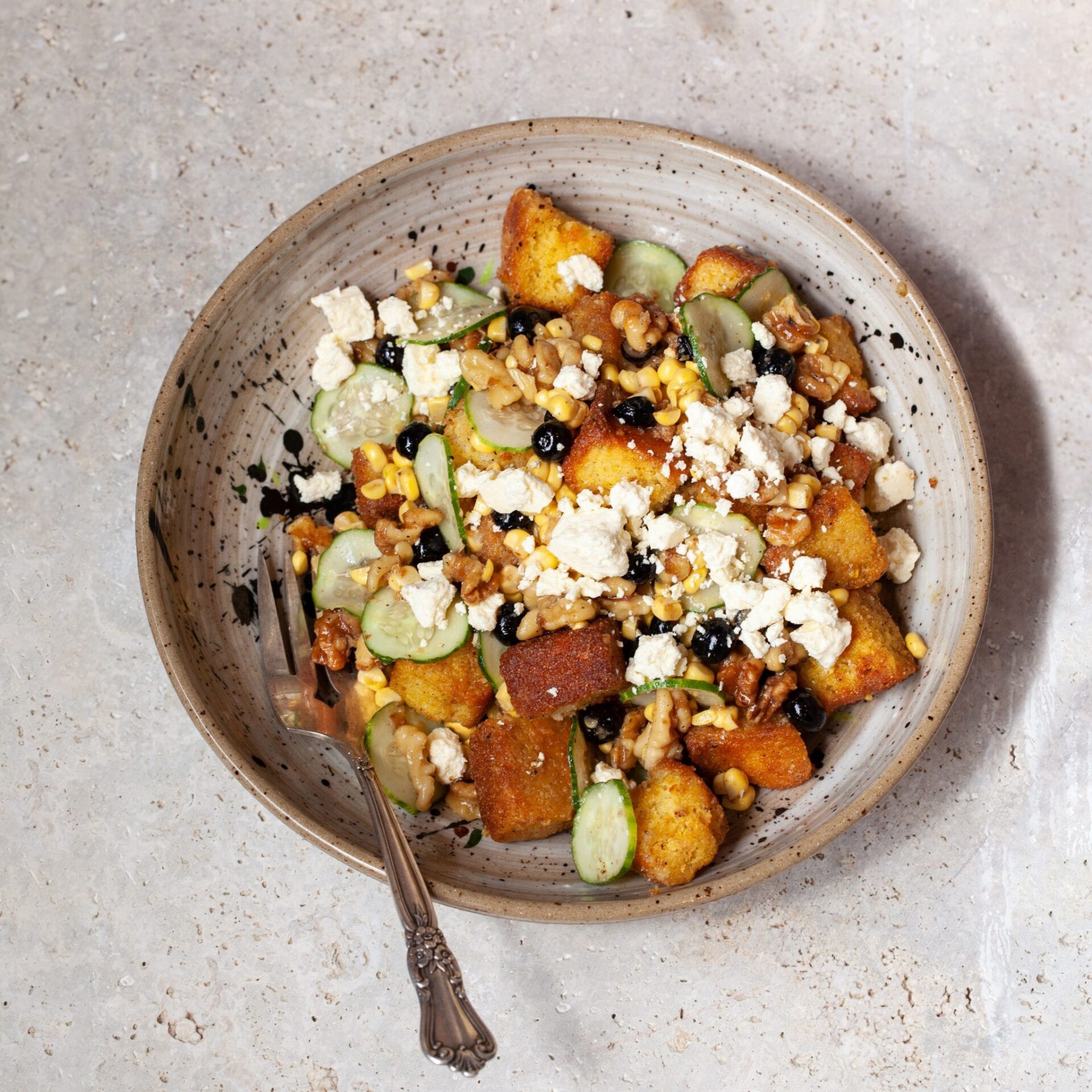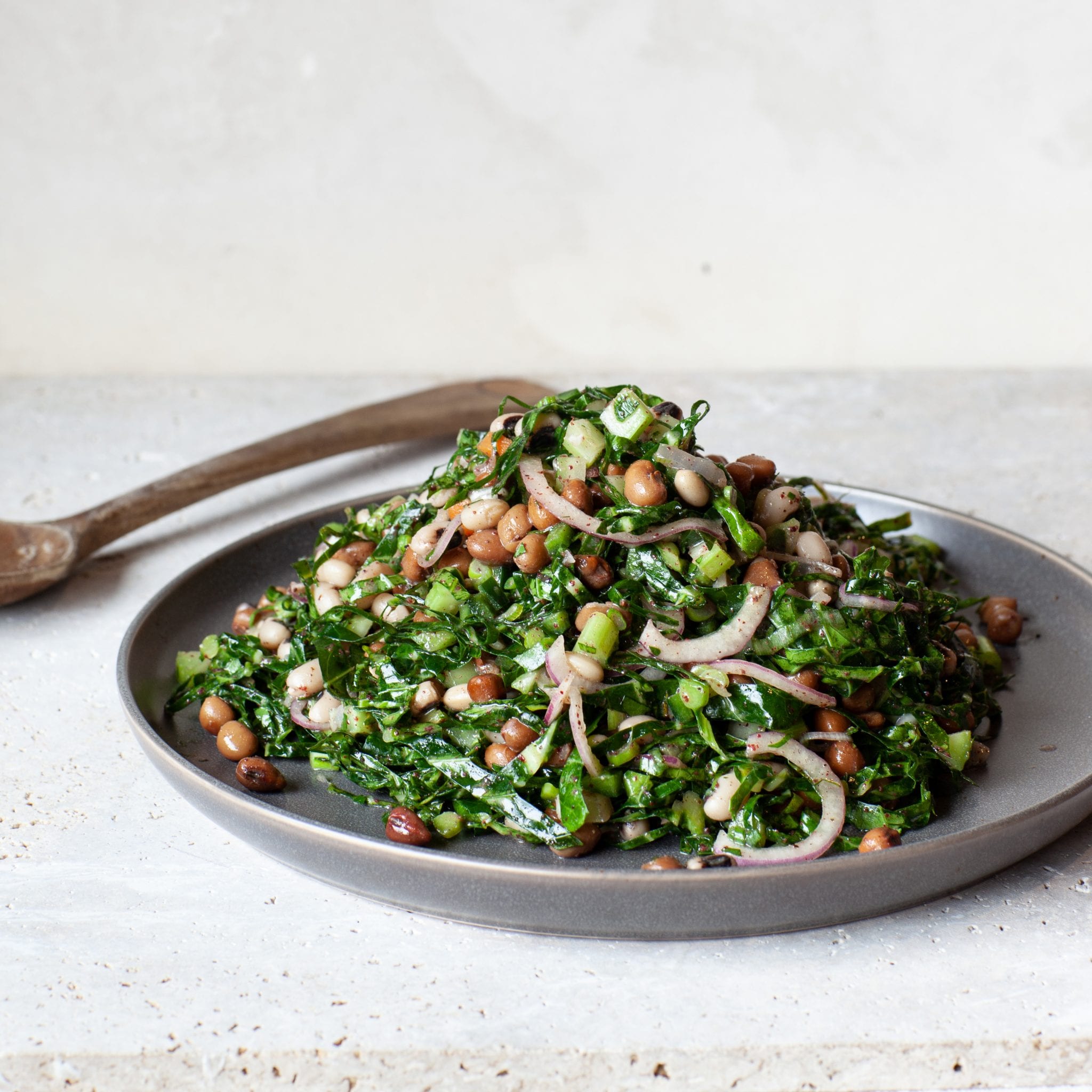
Sankofa means go back and get it. Symbolized by a bird with feet firmly planted on the ground, head craned backward, the word comes from the Akan tribe in Ghana. It’s a reminder that we must remember our roots in order to forge ahead. And it’s the mantra of Benne on Eagle, a restaurant dedicated to exploring the nuances of soul food through Appalachian ingredients in Asheville, North Carolina.

The kitchen isn’t serving the pork chops and plastic bowls of black-eyed peas and collard greens that the mention of soul food surely conjures (though each of those foodstuffs has its place on the menu). At first it may feel like a new kind of soul food, seamlessly weaving mountain ingredients into West Africa’s ogbono soup and akara fritters, along the way touching down on the South’s familiar deviled eggs and biscuits. But then again, wouldn’t that make it the epitome of soul food—a cuisine forged when cultures collided and then evolved at the hands of migration? At Benne, it’s both. The food is an old soul in a new form; it moves forward but always looks back.
The restaurant opened inside Asheville’s Foundry Hotel. At the core of its culinary identity is the patch of downtown it calls home; to tell the story of Asheville’s soul is to tell the story of this place. It begat the Block, the city’s oldest black neighborhood and business district, which was filled with thriving restaurants and shops along Eagle and Market streets through the ’50s and ’60s. But in the 1970s, urban renewal efforts in the town displaced residents and left the district behind. Its prominence slowly dwindled.
“This was the location for a really healthy soul food restaurant population,” chef John Fleer says. “So it really was the location that was the impetus to say, ‘Let me think about it.’ There was a passion for doing the right thing that was driving me forward in this project.” So he said yes.
On an eastern-facing wall of Benne adjacent to the bar, hangs a grand painting that depicts the view formerly visible from a window that had to be replaced with brick during the restaurant’s construction. “We’ve had people who come in and look at it and say, ‘My aunt lived in that house,’ or, ‘My family lived here,’” Fleer says. He worked with longtime community members to help guide the kitchen—namely Hanan Shabazz, a chef who co-owned and operated a soul food restaurant on Market Street and whom Fleer describes as “basically everybody’s grandmother.” It’s all a part of the restaurant’s efforts to find its place on the Block. “Our mission is not just with the food, but with the history of the neighborhood,” Fleer says. “I am completely aware that the neighborhood will never be what it was, but it think it will be a better place if we don’t forget what it was, if we remind people that, though it is different now, there was a thriving community here that was created and driven by the African-American population of Asheville.”
Like the neighborhood, Benne itself will evolve. In fact, that’s precisely the point. But what’s more, its account of Appalachian soul food will evolve too. “This is not the end-all, be-all,” Fleer says. “Discovery is cyclical. We keep going back and finding more.”











